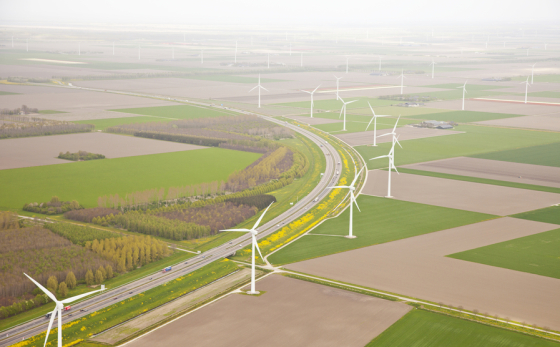Paris climate deal means more solar panels, wind farms and electric cars
 The Netherlands will need to begin making dramatic changes in the next 18 months to meet the ambitious climate change targets set at the Paris summit, environmental scientists told NOS.
The Netherlands will need to begin making dramatic changes in the next 18 months to meet the ambitious climate change targets set at the Paris summit, environmental scientists told NOS.
The target of limiting the impact of global warming to 1.5 degrees by the end of the century will demand a much faster switch to green energy sources than currently planned.
Marjan Minnesma, director of the Urgenda organisation which won a court case against the Dutch government’s climate change policy this year, described the deal as a ‘boost for the court case’.
‘Putting the figure of 1.5 degrees in the agreement means that we will need to stop using fossil fuels within 20 years. The gas reserves in Groningen will be finished in 20 years, so it can only be a good thing to start now.’
Minnesma predicted that electric cars and wind farms would become far more prevalent as a result of the deal. ‘If you’re still driving now, your next car will be electric,’ she said.
Coal plants
Tjerk Wagenaar, director of environmental organisation Natuur en Milieu, said the deal vindicated the plan to close the Netherlands’ remaining coal-fired power stations, which was steered through parliament last month by a coalition of the governing Labour Party (PvdA) and opposition group D66.
‘Europe has plans to close the majority of its 280 coal-powered plants within five years. That has consequences for the Netherlands,’ he said.
He added that solar panels would become a standard feature on Dutch roofs in the coming years.
‘The price is falling very fast now. We would expect that within 10 years solar panels will be installed as standard in renovations and new buildings.’
Fossil fuels
But there was criticism from some quarters for leaving aviation and shipping, two of the heaviest industrial polluters, out of the text and not making specific references to fossil fuels.
Ben van Beurden, CEO of Shell, said earlier this year that fossil fuels still accounted for 80% of the world’s energy consumption. ‘The scale of the sector is simply too large to change at a stroke,’ he said.
Angel Gurria, secretary-general of the OECD, described the deal as ‘only the start of the journey to a low-carbon future’.
Paul Polman, chairman of Unilever, said the decision would release billions of dollars to invest in ‘the immense creativity and innovation in the private sector’ for renewable energy.
‘The consequences of this agreement will be felt in banks, stock exchanges, boardrooms and research centres. The whole world is aware that we are now embarking on an unprecedented project to build a low-carbon global economy.’
Thank you for donating to DutchNews.nl.
We could not provide the Dutch News service, and keep it free of charge, without the generous support of our readers. Your donations allow us to report on issues you tell us matter, and provide you with a summary of the most important Dutch news each day.
Make a donation